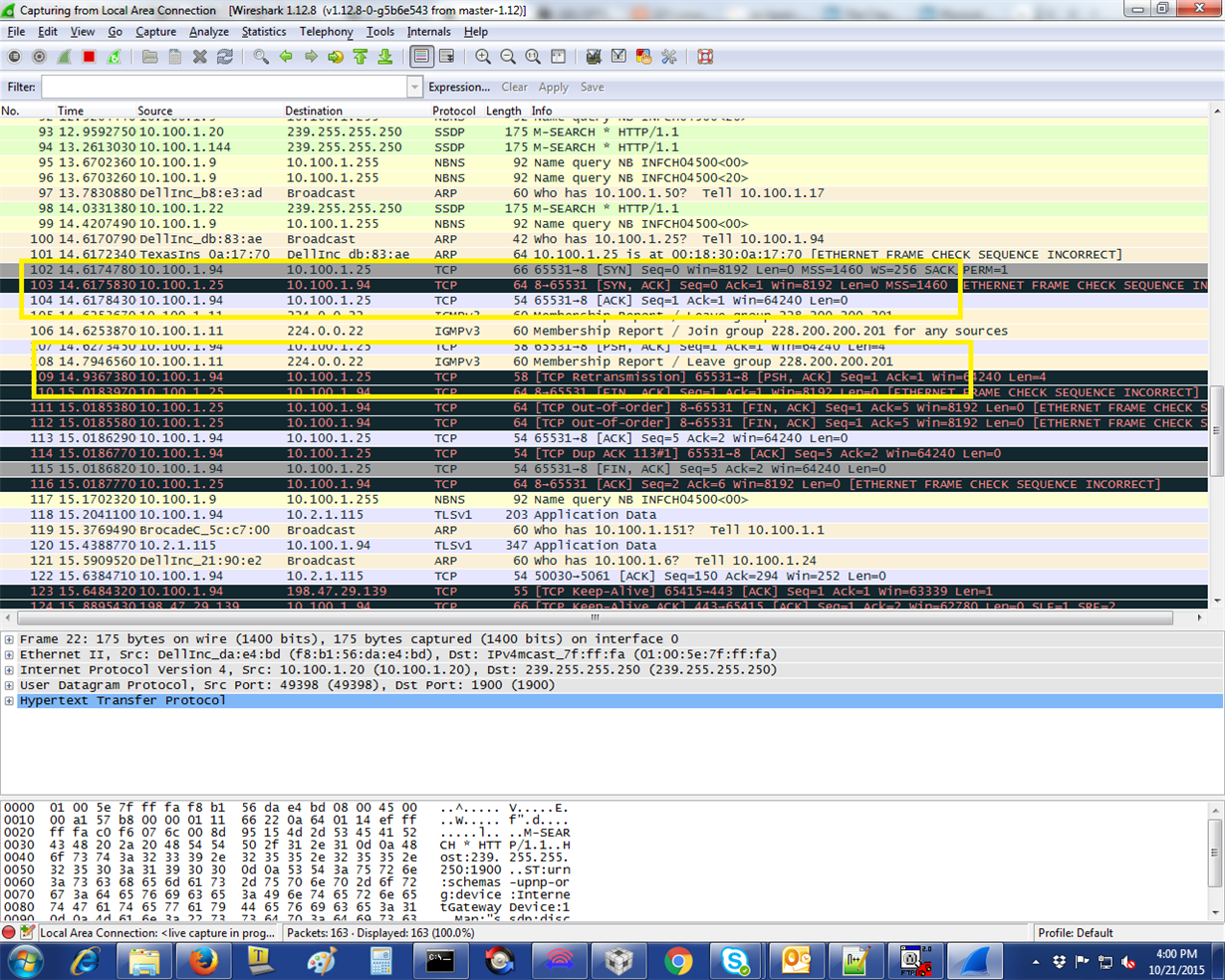Hello,
This is a re-post from the TI-RTOS forum. I am also submitting it here, since I believe that this issue is more relevant to C66 processor.
We are using C6655 processor, although I can see the problem on C6657 EVM board also.
I am using the following software configuration:
Code Composer 6.1
Compiler 8.0.3
BIOS 6.42.01.20
XDC Tools 3.31.02.38.core
mcsdk 2.01.02.06
pdk c6657.1.1.2.6
NDK 2.24.03.35
When the system first starts up, UDP packets on the C66 device are received correctly. However, when I try to establish the TCP connection, I am seeing a delay of up to 40 seconds before the TI stack acknowledges the SYN request.
After this initial delay, the stack appears to be working correctly.
The attached snapshot of the wireshark window demonstrates the problem.
Any responses and suggestions would be greatly appreciated.
Best Regards,
Dmitry.


